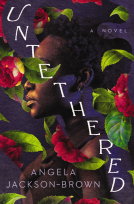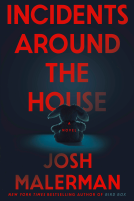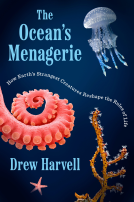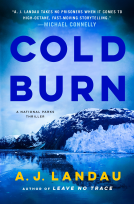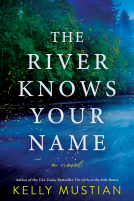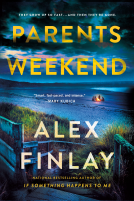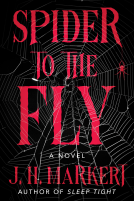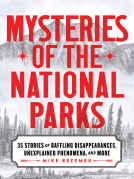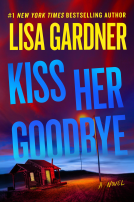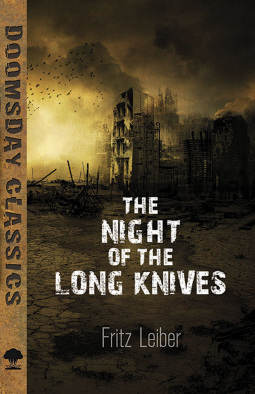
The Night of the Long Knives
by Fritz Leiber
This title was previously available on NetGalley and is now archived.
Send NetGalley books directly to your Kindle or Kindle app
1
To read on a Kindle or Kindle app, please add kindle@netgalley.com as an approved email address to receive files in your Amazon account. Click here for step-by-step instructions.
2
Also find your Kindle email address within your Amazon account, and enter it here.
Pub Date Jul 15 2015 | Archive Date Sep 09 2015
Description
Welcome to Deathland, a postapocalyptic nuclear desert where kill or be killed is the law of the land. The radiation-damaged survivors of this ravaged region are consumed by the urge to murder each other, making partnership of any sort a lethal risk. But when two drifters forge an uneasy truce, the possibility of a new life beckons.
Written by a multiple Hugo Award–winning author and one of the founders of the sword-and-sorcery genre, this novel-length magazine story first appeared at the height of Cold War paranoia. Fritz Leiber's thought-provoking tale addresses timeless questions about the influences of community and culture as well as the individual struggle to reform.
Available Editions
| EDITION | Paperback |
| ISBN | 9780486798011 |
| PRICE | $9.95 (USD) |
Featured Reviews
 Rosemary S, Librarian
Rosemary S, Librarian
First published in 1960, this postapocalyptic thriller feels strangely current. In the aftermath of a nuclear holocaust, the United States is unrecognizable. All semblance of law and order is long since gone and the people left will do anything, including kill, to survive. In the midst of the chaos, two drifters meet and form an uneasy alliance. While this is a short story, it has the depth and character development of a much longer read. And while this scenario seemed all too possible in 1960, it would have been almost impossible to believe in modern times, until the last year or so. Isn’t the U.S. sending tanks to Europe to quiet fears about potential Russian hostilities? The more things change the more they stay the same
 Polly K, Reviewer
Polly K, Reviewer
Proving that this classic Fritz Leiber story endures, this edition of The Night of the Long Knives is ageless in its interpretation of one possible future of the human race. A haunting story, mesmerizing! Recommended.
 Maxine M, Reviewer
Maxine M, Reviewer
America has been devastated by a nuclear holocaust. Although there are still so-called civilized factions living (and warring) in some areas such as Atla-Hi and Alamos, much of the interior, now called the Deathlands, is blanketed by radioactive dust. Survivors or Deathlanders, who bear the scars both physically and psychologically of this holocaust, have developed a compulsion to kill. They may band together for immediate needs and for short periods but eventually they will be driven to murder each other.
Ray, the narrator, has just survived such a Murder Party when he meets Alice, another Deathlander, and they fall into an uneasy truce. When they stumble upon a plane that appears seemingly from nowhere and then a friendly old man they call Pop, their urge to murder is eased at least for the moment first by the murder of the craft’s pilot and then by curiousity. A decision to steal the plane has some surprising consequences as they learn more about the world outside the Deathlands, about each other, and most importantly about themselves and their motives.
The Night of the Long Knives was written by author Fritz Leiber in 1960 at the height of the Cold War and at the end of the Red Trials in America and the title is taken from the 1934 purge by the Nazi Party of Leftists within the party as well as outside opposition. With the end of the Trials that had destroyed the careers of so many people within the arts including writers, many in the US were trying not only to put this sad period of their history behind them but also trying to understand how it could have happened and how they could move forward. This was reflected in much of the writing of the period but none does it better than this novella by Leiber. Ray talks often about the Last War and the capitalizing these two words reflects both the hope that the world will finally learn from the devastation of war and the fear that, given its recent actions, it has learned very little and, therefore is doomed to repeat it:
Oh, I can understand cultural queers fighting city squares and even get a kick out of it and whoop ‘em on, but these Atla-Hi and Alamos folk seemed a different kind of cat altogether… - the kind of cat that ought to have outgrown war or thought its way around it. Maybe Savannah Fortress had simply forced the war on them and they had to defend themselves…Still, I don’t know that it’s always a good excuse that somebody else forced you into war. That sort of justification can keep on until the end of time.
With its very likeable trio of murderous Deathlanders and it’s sparse noir prose and active voice as well as it’s pacing reminiscent of the language and rhythm of the post-war beat poets, The Night of the Long Knives is still a very highly readable and engrossing novella despite its age. There is a great deal of violence both in the action and the language but this is a surprisingly hopeful story and it’s message is still as important and relevant today, one could almost argue prescient.
4.5
A classic of what I think of as "muscular science fiction" of the late 50s and early 60s. A short read and a nicely paced one - definitely a must for post-apocalyptic fiction fans.
 Reviewer 230978
Reviewer 230978
The Night of The Long Knives by Fritz Leiber- Originally published in Amazing Stories in 1960, The Night of The Long Knives is a novella about Earth, and America in particular, after a devastating war that has killed millions everywhere and left parts of the country saturated with fall-out areas called the Deathlands. People still live in these Deathlands, surviving by skill and cunning, for anyone they meet is out to kill them and they are the same. Three people are thrown together by circumstance and must join forces to live, while consciously fighting the urge kill the others. With a Virgil Finlay illustration added, this intense tale is a thought-provoking yarn worthy of Leiber's great talent and a welcome return to print.
 Reviewer 224449
Reviewer 224449
This post-apocalyptic novella from 1960 holds up pretty well, although some of the sci-fi elements are a bit dated, and there are, of course, a few questionable things. Overall, it's a good story and pretty entertaining. If you're a fan of classic sci-fi and post-apocalyptic stories, this is worth a go.
 Susan M, Reviewer
Susan M, Reviewer
A different type of novel about post-apocalyptic America. The radioactive areas of America's west are call deathlands. Ray is a deathlander. He survives by being armed to the teeth with a favorite knife called "Mother." Deathlanders instinct is to kill first when running into someone. Ray's life has been reduced to murder and sex. When a woman appears near him, Ray thinks about what he should do. A hovering airplane appears the next day with a man who comes out. Will Ray kill him? An old man names Pops appears and tells them about Murder Anonnymous. What is it? Ray, Pops and the woman take a trip on the airplane which changes Ray's thinking.
Leiber's writing starts with a surreal opening that I didn't expect. I found my emotions fully engaged while reading this novella. It is a look at mankind's propensity to violence. Leiber writes a story that engages the reader to think about violence. It is a compelling read.
 Librarian 105878
Librarian 105878
Dover Publications is a reprint publisher and I've really enjoyed a number of the works that they've selected for re-publication. This novella from Fritz Leiber, a giant in the golden age of fantasy and science fiction, is a once-lost treasure.
Leiber is often associated with fantasy, and more precisely, Sword & Sorcery (a term he coined), but he did write more 'conventional' science fiction as well, as is evident here. This story is a post-apocalyptic tale, written about the same time as some more famous post-apocalyptic novels (Alas, Babylon [1959] and A Canticle for Leibowitz [1960]).
This story follows a loner, a scavenger, Ray, as he tries to survive in The Deadlands (an area of the United States devastated by nuclear holocaust). He encounters a woman, Alice, both of them showing signs of radiation poisoning, both of them wary of the other but looking to trust someone, somehow. As they meet, they slowly begin disarming in front of one another, to show that they are safe. Once completely naked (the only way to show that they aren't still hiding something) they enjoy a more intimate encounter.
Ray and Alice, mostly out of convenience, stick together and encounter another Deadlands survivor, whom they come to call Pop. The trio, sticking together for safety in numbers reasoning, engage a stranger who lands a spaceship-like craft in their area. They hijack the ship, press a load of buttons hoping to find an auto-pilot. They have no destination other than to get away from where they are. But is the grass greener on the other side?
This story definitely has a dated, 1950's/1960's feel to it, but at the same time could easily appear in a sci-fi magazine today. Post-apocalyptic stories are still vogue, and Leiber's themes of questioning man's morality and what it means to be human are still strong themes in today's literature.
This is a story well worth reading.
Looking for a good book? This reprint of Fritz Leiber's The Night of Long Knives is a short science fiction novel from the early 1960's that is still a strong read today.
I received a digital copy of this book from the publisher, through Netgalley, in exchange for an honest review.
 John S, Librarian
John S, Librarian
books like this are the reason that Leiber is a Master of the field
 Josef H, Reviewer
Josef H, Reviewer
Fritz Leiber is best known for his fantasy series starring Fafhrd and the Gray Mouser and may put him in the ranks of a fantasy writer. Before he launched himself into the series that he returned to over the span of his life, most of Leiber’s works were science fiction or horror rather than fantasy. “The Night of the Long Knives” falls into this category as well with its apocalyptic storyline and themes. Dover Publications recently re-released this book, which was first published in 1960, and I was happy to get a copy of this oft-forgotten work from a master of the genre.
The world was destroyed in a nuclear holocaust and the landscape has been permanently ravaged into a wasteland of the society that used to be. The survivors of the holocaust are a mutated group that are loners due to the uncontrollable urge to kill each other upon sight. It is a lonely land of people who scurry about like rats, hiding from each other and the primal urges that have replaced thought in the wasteland of what used to be the United States of America.
A man and a woman come together and overcome the urge to slay each other and become mates. When they later meet up with a man named Pops in a flying machine that he had killed for, they travel on a preprogrammed path to the edge of the wasteland to where a war is still raging between nations. Along the way, the trio must come to grips with what has happened to the world and their parts in the nuclear war. Even in a land in which humans are returned to base savagery, the trio is proof that humanity is still alive even if there is very little hope for the future.
Fans of Leiber’s adventure and fantasy novels may be surprised by this novel as there is very little action in the story as Leiber opts to take a moralistic look at the apocalypse rather than the apocalypse itself. Given that the story was first published in 1960, there are some things in the novella that are dated and, while it did not detract from the story for me, may be a little awkward for younger readers. “The Night of the Long Knives” was written during the height of the Cold War and there is that political perspective in play in this novella as well. The novella is largely made up as a conversation between the main characters as they share their adventures in and thoughts on the nuclear war.
The approach to this story may not work as well for some readers as for others as this is a story that is told largely through word of mouth as the characters discuss their actions and thoughts rather than through a retelling of those actions. In that way, the novella is almost like a parable or a work of philosophy rather than a narrative and this was a great approach for me but, again, may not work for everyone as it is a structure that is not too common. What Leiber does is provide the backdrop for a deep discussion on what it is to be human, how to cope with guilt (as a character talks about being on those who actually pushed the button to launch a missile), and how one can ultimately find redemption even if it is only personal redemption. In stark contrast to Leiber’s better known action novels, “The Night of the Long Knifes” is a morality play at its finest and a glimpse into the deepest chasms of the human mind as the world crumbles around it.
I would like to thank Dover Publications and NetGalley for this review copy. “The Night of the Long Knives” is available now.
 Wayne M, Reviewer
Wayne M, Reviewer
'The Night of the Long Knives' is a novella by Fritz Leiber. It's a crazy post-apocalyptic tale that holds it's own against today's tales.
Ray is a survivor and scavenger in the Deathlands, a post-apocalyptic wasteland where there are no rules beyond survival. When Ray sees a lone woman wandering around, he has two thoughts and one of them is to kill her. It seems he shares the second thought with her as well. They are taken by surprise by a crazy old man named Pop, then doubly surprised by a strange craft landing on the road they are on. Before long, the three of them are off on a strange journey that may see them dead or changed forever.
I really liked this story. It seems a bit too weird for the early 1960s, but perhaps Leiber was that ahead of his time. I've read other works by him, but never anything like this. He's a good writer and a lot happens in the 112 pages of this book, and I enjoyed the journey.
I received a review copy of this ebook from Dover Publications and NetGalley in exchange for an honest review. Thank you for allowing me to review this ebook.
 Daniel H, Reviewer
Daniel H, Reviewer
Originally published in a 1960's issue of Amazing Science Fiction, this Fritz Leiber novella gets a nice thrifty paperback edition release from Dover Publications as part of their wonderful new Doomsday Classics series. If you are like me you'll vastly prefer reading these as actual copies rather than poorly formatted digital versions.
I have limited experience with Leiber, so I was intrigued by this just as an excuse to read something by a classic, well-known name in SFF. And as a post-apocalyptic story it intrigued even more.
The post-apocalyptic field has become overcrowded, particularly with a boon in entries by mainstream authors who for whatever reason reject classification within the speculative or fantasy genres. In most cases I've been disappointed by these newer works because they fail to add anything significant to the corpus already built by genre and mainstream authors alike. Reading Leiber's story I did not have this feeling at all. A part of me realized that this was written at a time before these stories were a dime a dozen. So to a degree I gave it grace. Still, I enjoyed the novella regardless of any thematic novelty because while familiar, Leiber writes it with remarkable skill, with elements neither overly complex nor simplified.
The Night of the Long Knives comes from an era full of post-apocalyptic imaginings: the Cold War. As typical throughout forms of media, disaster comes to the world via nuclear annihilation. The United States has been transformed into a waste, the Deathlands. Radiation-scarred survivals struggle for resources in competition and deep mistrust. Two drifters, Ray and Alice, meet upon the site of a crashed flying ship that has made an emergency landing in the barren wilderness. The two form a fragile alliance of mutual benefit faced with the opportunity before them: a possible way out of the Deathlands into one of the few pockets of civilization that may remain.
Along with the survivor of the crashed craft, this makes just three characters in a novella with a rather straight-forward plot. Leiber creates a journey for the reader with explorations of the character's psychology, their words and actions. As with most post-apocalyptic fiction the key interest is how humans react to one another. The most frightening aspect of The Walking Dead is not the zombies, but what the characters - good or evil - are capable of. The most frightening aspect of The Night of the Long Knives is not the nuclear devastation, but the destroyed basic humanity, the impossibility of bonding. The most frightening aspect of the Cold War is not the nukes, but the nationalism of humans.
The dialogue in The Night of the Long Knives is particularly strong, making each of the characters into people that readers can relate to, at least in some significant, deep fashion. Leiber makes you feel the devastation, the hope and the despair in ways that Donaldson's Thomas Covenant series would later do in Epic Fantasy - or Stephen King of course would with his epic post-apocalyptic The Stand. The emotional and physical struggles of the characters in Leiber's novella will probably not be anything surprising to a reader. Despite that general familiarity, Leiber's words remain compelling and still relevant to our hearts over half a century after they were written.
